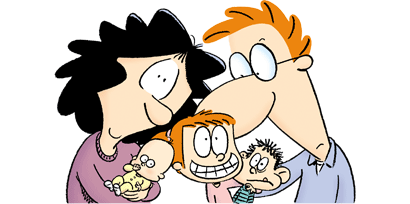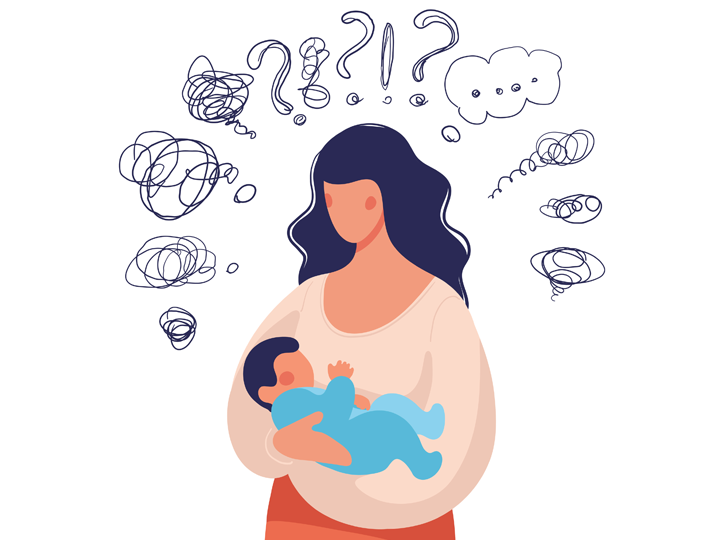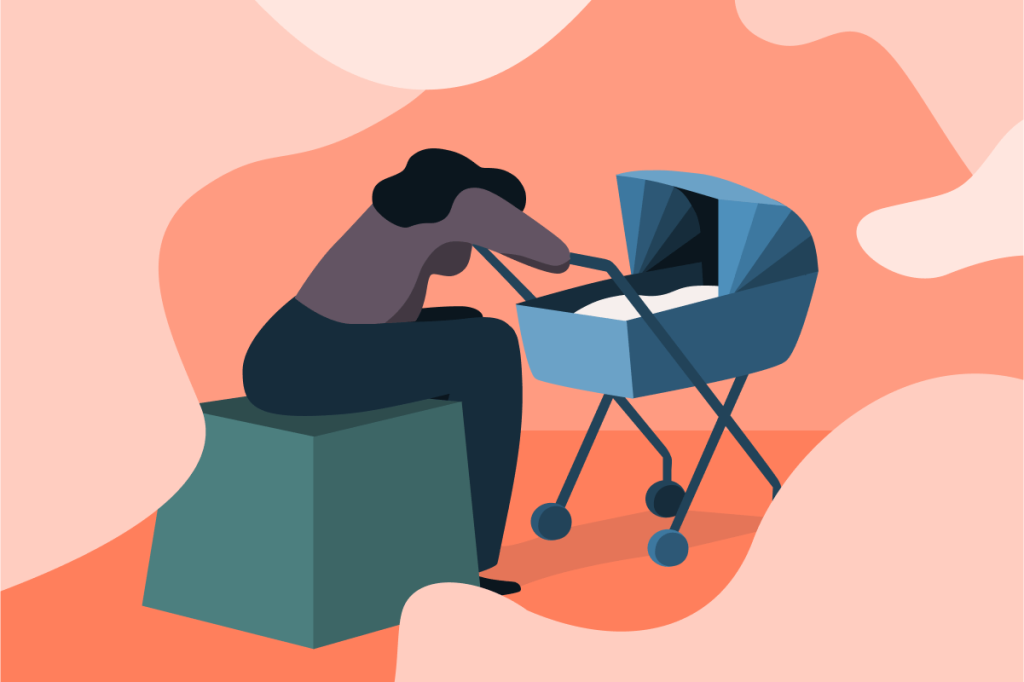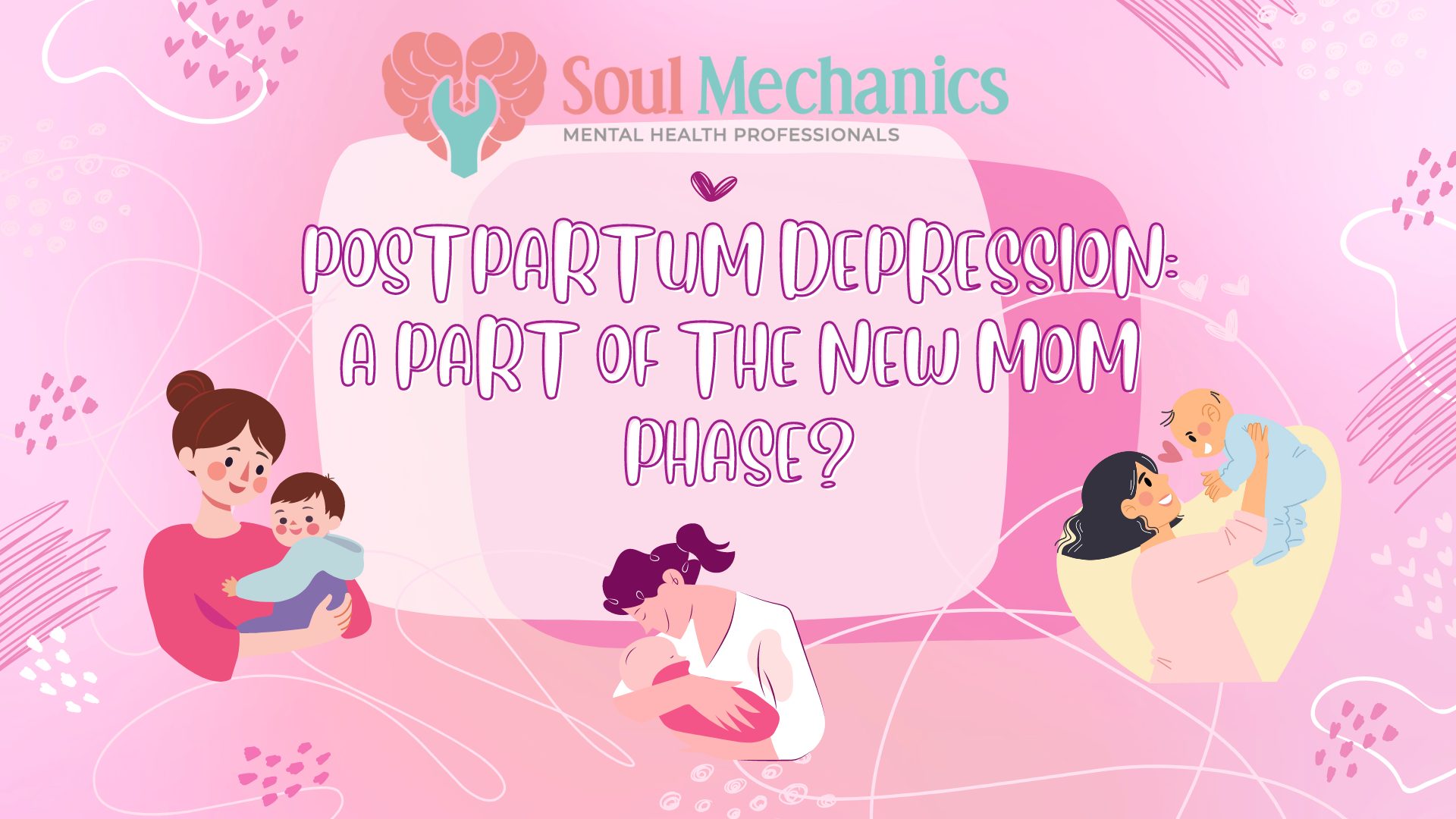Postpartum Depression: A part of New Mom Phase?
Postpartum Depression: A part of New Mom Phase?

Written By: Shaundtrya Ganasan, Licensed Counselor (KB11097)
Childbirth is a beautiful process. By bringing a new life into the world, a couple transitions into parents, caretakers, guardians, role models, etc. For many new mothers, childbirth is an empowering and transformative experience. It reminds them of their resilience and strength to bring life into the world. Childbirth begins a deep, beautiful bond between the parents and their newborn. New parents also tend to be overwhelmed, intense, emotional and awed as they bring their child into the world.
Venturing Into the New Mom Phase

Childbirth is a beautiful beginning for new parents. But, it can also be a painful, tiring, or even traumatizing experience for some new mothers. Childbirth can also be exhausting as the mothers undergo drastic physical, emotional, and mental changes and become more hormonal. The new mothers also experience changes in their interpersonal and family life before and after childbirth. They may experience various emotions, from joy, happiness, and being overwhelmed to sadness, pain, fear, etc. These overwhelming sad feelings and emotional changes are often termed ‘baby blues’; new mothers often experience them for the first two weeks of childbirth.
Nevertheless, if the feelings of overwhelming sadness and emotional ups and downs last more than two weeks or become more severe, it could be ‘Postpartum Depression’. Postpartum Depression is a form of long-lasting depression that some new mothers experience. It is also known as ‘Peripartum Depression’, as it may start during the pregnancy period and continue even after childbirth. If left unacknowledged, it may adversely affect the mother, the newborn and their families. It also manifests through a lack of mother-child interactions and bonding among families. New mothers are also likely to experience Postpartum Depression if they have a history of depression or family members have it.
It may be Baby Blues if new mothers experience:

- Quick mood swings (e.g. sad to happy).
- Low self-care, appetite and change in sleep.
- Feeling anxious, irritated and overwhelmed.
- Bonding doesn’t happen immediately with the child.
- Worry about minor things
- Lasts a couple of weeks.
It may be Postpartum Depression if new mothers experience:
- Feeling sad, worthless, hopeless, and crying often.
- May experience frequent panic and anxiety attacks.
- Bonding can be difficult with the newborn.
- Worry about not being fit to be a mother or being unable to push through this phase.
- Lasts more than a couple of weeks.

Symptoms of Major Postpartum Depression may be:

- Depressed Mood
- Sleeping Problems (e.g. hypersomnia or insomnia)
- Weight Loss
- Loss of Energy (e.g. lack of interest or pleasure)
- Hopeless & Guilty feelings
- Agitation & Low Concentration
- Frequent thoughts of self-harm or suicide
New mothers with Postpartum Depression tend to experience mild, moderate or severe depressive episodes and a drop in their energy level depending on the severity and number of symptoms experienced. They tend to feel fatigued quickly after using minimum energy and effort; and reduced confidence due to feelings of guilt and worthlessness. Furthermore, mothers with Postpartum Depression experience other somatic symptoms such as unusual rising in early mornings, reduced libido, and marked retardation in their psychomotor functioning. Some mothers may also experience psychotic symptoms such as hallucinations and delusions (e.g. voices or images asking them to harm their newborns) along with Postpartum Depression. Thus, it is essential for mothers who are sceptical about whether they are experiencing Postpartum Depression to screen with a mental health therapist rather than self-diagnosing themselves for accurate diagnosis and better mental health assistance.
Reminder: If you or your loved one are struggling with postpartum depression, please don't hesitate to reach out to us at Soul Mechanics KD or Soul Mechanics Ipoh.
Remember, seeking help is not a sign of weakness but strength!
Risk Factors that may lead to Postpartum Depression:
Psychological
Previous anxiety and depression, premenstrual syndrome (PMS) history, unhappiness towards the gender of the newborn/baby in the womb, and sexual abuse history can be possible psychological factors that may develop Postpartum Depression among new mothers.
Lifestyle
Unhealthy eating habits (e.g. junk food, high sugar/salt, carbonated drinks), sleep patterns (e.g. not getting enough rest/sleep, sleeping late, waking very early), inconsistent and lack of exercise and physical activities may also cause one to experience Postpartum Depression.
Obstetric Risks
Complications during pregnancy or childbirth (e.g. bleeding during pregnancy, early delivery, emergency cesarean, low haemoglobin, nuchal cord; baby’s neck is wrapped by umbilical cord in the womb, etc.) may also lead towards Postpartum Depression in new mothers.
Social Factors
Lack of social support, spousal abuse (e.g. verbal or emotional) and violence (e.g. physical or domestic) during pregnancy or after childbirth can lead to Postpartum Depression. Furthermore, substance abuse (e.g. drinking alcohol, smoking, vaping, drug abuse) are also factors that contribute to developing Postpartum Depression.
The impact of Postpartum Depression on mother and child can be:
Difficulty in maintaining mother-child interactions.
Lower rates of initiating and continuing breastfeeding.
Health issues in child (e.g. stomach ache, fever, etc.)
Lower cognitive functioning in children.
Behavioral issues in children.
Developing emotional concerns (e.g. anxiety, depression, disruptive disorders).
Several strategies new mothers can try to cope with their Postpartum Depression:
Seek Professional Assistance
A mental health practitioner can assist new mothers in managing their symptoms and exploring coping strategies that suit the new mother. It helps new mothers to share their worries and explore the factors that lead towards Postpartum Depression.
Practice Self-Care
Self-care is crucial for new mothers, such as eating on time and healthily, sleeping well, exercising, and engaging in calm activities. Recovery from Postpartum Depression takes time, and being compassionate with themselves during the process is essential.
Build a Support System
New mothers can reach out to their loved ones for support and share their struggles. They can also seek assistance from other experienced parents or join support groups, as it can provide them with a sense of connection and reassurance.
Set Realistic Expectations
It is crucial for new mothers to organize their daily routines and set small, achievable and realistic goals for themselves, providing them with a sense of accomplishment. It is okay to take breaks and ask for help to reduce stressful and overwhelming feelings.
Practice De-Stress Techniques
New mothers can practice stress management techniques such as breathing exercises, meditation, yoga, listening to music, and so on to alleviate their anxiousness and other unhealthy feelings that they experience before and after childbirth.
Conclusion
In addition, although Postpartum Depression is commonly linked with new mothers, it is also essential to recognize and acknowledge that new fathers can also experience Postpartum Depression. The symptoms experienced by fathers are almost similar to those of the mothers, such as changes in daily routine, changes in sleep schedule, financial stress, relationship change with their spouse, etc. Thus, it is crucial to be concerned with the new fathers' mental health and well-being also, along with the new mothers. New fathers can also practice the suggested ways of coping with Postpartum Depression along with new mothers. Fathers can also benefit from counselling or support groups tailored by other fathers who experience Postpartum Depression as a medium to seek support, share their experience and exchange their coping techniques.
In short, it is crucial to know that Postpartum Depression can affect both the new parents, regardless of their gender, and it is essential to seek needed help and support as a step toward recovery. It is advisable to seek professional assistance from mental health therapists if the new mothers or fathers cannot cope with the symptoms or experience the symptoms persisting for more than a couple of months. Recovery from Postpartum Depression varies according to the individual and it takes time and effort. One can work towards healing and recovery with patience, the right coping strategies, and assistance.
Parenthood; a beautiful yet painful process. Just like the pupa, parents shed their skin and go through a painful transformation to make their child a beautiful butterfly.
Shaundtrya Ganasan, Licensed Counselor (KB11097)
Reminder: If you or your loved one are struggling with postpartum depression, please don't hesitate to reach out to us at Soul Mechanics KD or Soul Mechanics Ipoh.
Remember, seeking help is not a sign of weakness but strength!
If you’re looking for a therapist in Kota Damansara or Ipoh area, you can click here for more information.
If you enjoyed reading this, why not broaden the horizon of knowledge by learning about "Body Image: Issues Pertaining Dissatisfaction"? You can read the blog here.
For more content related to mental health do follow us on our official Instagram.

